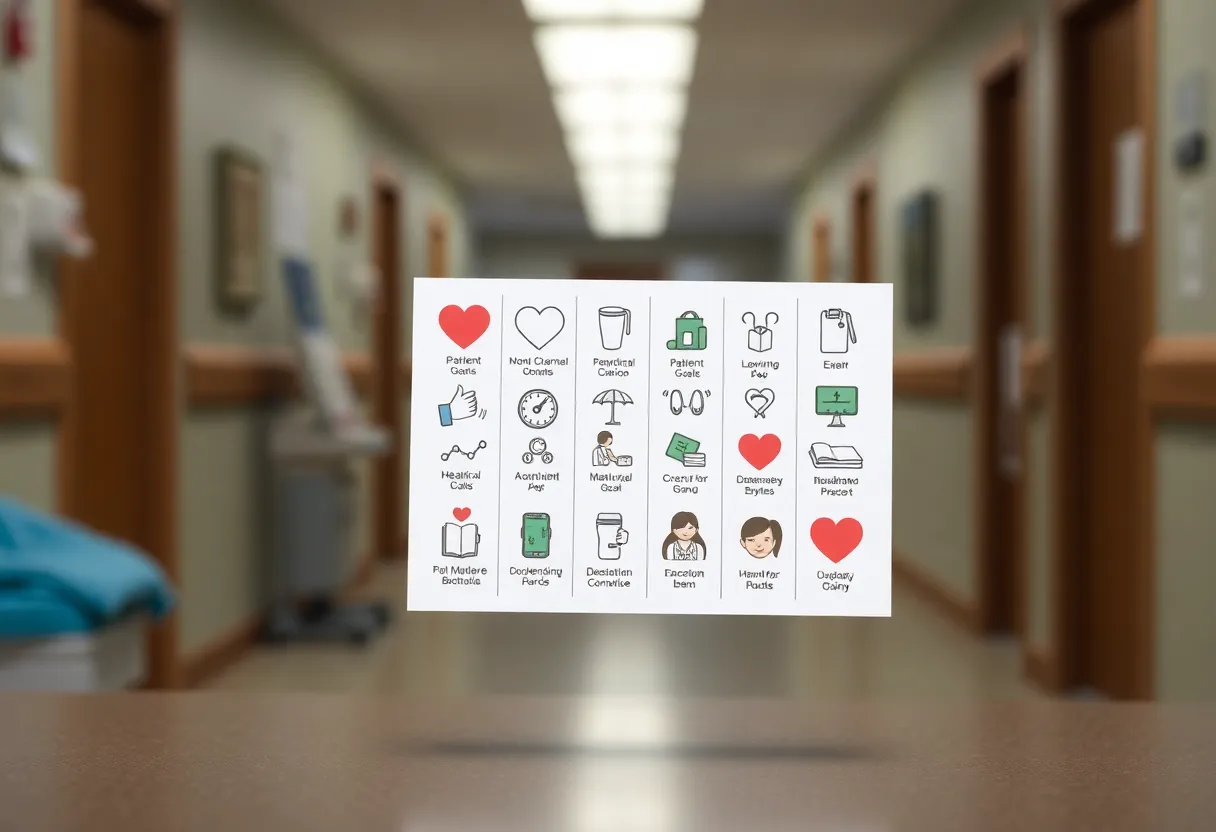News Summary
Researchers have introduced the ‘About Me’ Care Card, a tool designed to foster engagement for patients with cognitive impairment. Emphasizing shared decision-making, this innovative approach aims to address personal fears and social needs rather than just clinical jargon. Feedback from patients and caregivers highlights its potential for opening essential conversations about care, while identifying the financial implications of cognitive decline. The integration of the Care Card into primary care could improve tailored care outcomes as the aging population faces increasing challenges associated with dementia.
Exciting New Tool to Help Patients with Cognitive Impairment!
Have you ever felt that the conversation about cognitive impairment doesn’t quite hit the mark? It’s pretty common for patients and families to feel like traditional tools are all about medical jargon and clinical diagnoses, leaving personal fears and social needs in the dust. Well, there’s good news! Researchers have developed a fresh solution called the “About Me” Care Card, designed to enhance patient engagement by focusing on what really matters to individuals and their families.
Why the Care Card is a Game Changer
So, what makes this Care Card such a big deal? Well, it’s all about shared decision-making. Researchers crafted this tool thoughtfully, ensuring it aligns with the real conversations patients want to have. They kicked things off with a feasibility study, embracing a community and user-centered design approach. This means they didn’t just dream it up in a lab; they actively sought the feedback of those who would actually use it!
An extensive environmental scan unveiled empty spaces in existing cognitive care tools. It was clear something new was needed, and the Care Card was the result. A global steering committee, composed of health care professionals, patient advocacy groups, caregivers, and individuals with dementia, provided valuable feedback, refining the Care Card to suit everyone’s needs.
The Trials and Results
After gathering insights, fourteen clinicians from seven different institutions stepped up to pilot the Care Card. They tested it out during in-person visits or over the phone. The observations were telling:
- The Care Card allowed time to discuss what matters most to patients.
- It opened up personalized care conversations that truly resonate with individuals.
- Importantly, it also initiated discussions about social care needs, which are often overlooked.
- Families found that it helped moderate emotions when talking about sensitive issues related to dementia.
Post-use surveys from 44 participants revealed that most patients felt the Care Card was quite beneficial. In fact, 65% lined up behind the idea of using it for individuals over 65. However, it wasn’t all smooth sailing. Only 41% found it easy to use, particularly when cognitive challenges came into play. Meanwhile, just 32% reported that the tool helped in developing a solid plan that addressed their specific priorities.
The Importance of Integrating the Care Card
Integrating the “About Me” Care Card into primary care workflows could be a game changer for clinicians. By identifying patient concerns early, this tool could pave the way for more effective and tailored care. Cognitive decline can have a domino effect, impacting everything from emotional well-being to financial decision-making, making it vital to tackle these issues head-on.
It’s a sobering fact that more than 90% of Alzheimer’s cases show up after age 65. The implications are staggering—over 11% of Americans who are retirement age are affected, and the numbers are only set to double by 2050! Women face double the lifetime risk compared to men, while Black and Hispanic populations see higher prevalence rates.
Financial Health is Key
It’s also worth noting that early-stage cognitive impairment can wreak havoc on financial decision-making. A notable study from the Federal Reserve of New York uncovered troubling trends; individuals saw their credit scores dip and payment delinquencies rise in the years leading up to an Alzheimer’s diagnosis. For instance, the probability of credit card delinquency shot up by 21% and mortgage delinquency by 11% just two years before diagnosis.
The post-diagnosis financial consequences, including late fees and reduced access to credit, can hit women particularly hard. A proactive approach to identifying at-risk individuals through financial data could lead to timely interventions, ensuring better management of both health and financial outcomes.
Wrapping it Up
This study underscores a crucial message: managing both cognitive health and financial well-being is essential for older adults as they navigate the complexities that come with cognitive decline. The “About Me” Care Card not only supports conversations about personal needs and goals but also serves as a stepping stone toward a brighter future in patient-centered care.
Deeper Dive: News & Info About This Topic
HERE Resources
Additional Resources
- McKnight’s: Care Cards Get Cognitive Health Conversation Going
- Wikipedia: Cognitive Impairment
- Mirage News: New About Me Tool Enhances Care Planning
- Google Search: Cognitive Health
- Psychiatrist: Cognitive Decline Threatens Financial Stability of Older Americans
- Encyclopedia Britannica: Dementia
- Healthline: Memory Game Resources
- Google News: Memory Exercises
- Everyday Health: Brain Exercises for Memory
- Medical News Today: Cognitive Impairment Doubled Since 2009







